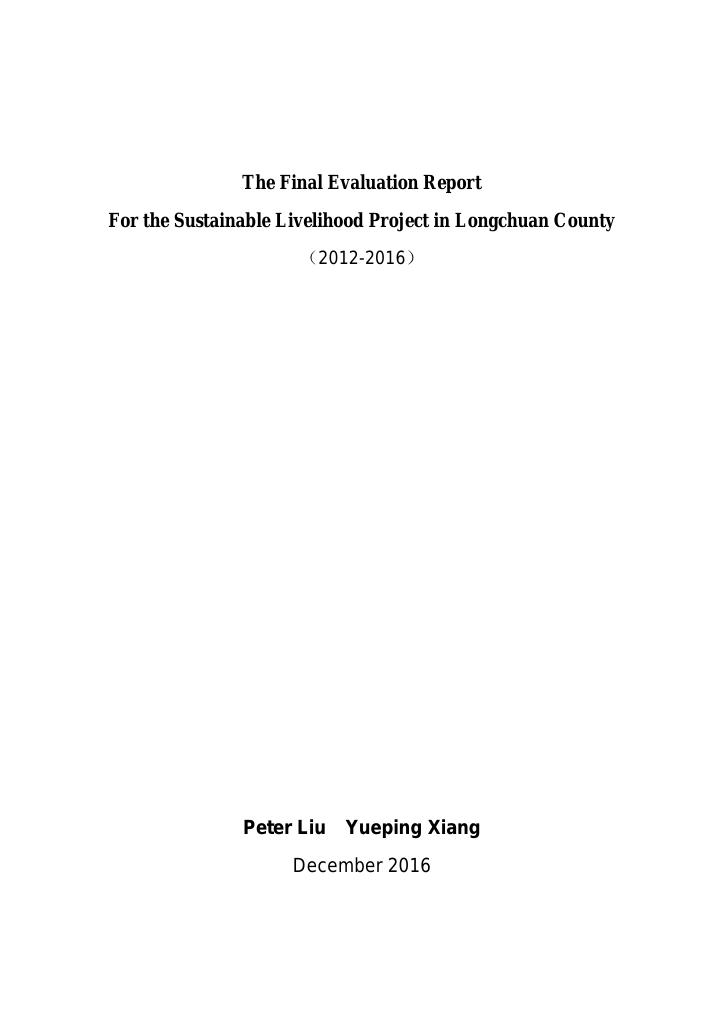Evaluering
The Final Evaluation Report For the Sustainable Livelihood Project in Longchuan County
In 2007, NMA (Norwegian Mission Alliance; hereinafter referred to as Buer) funded a 5-year project aiming at poverty reduction in Longchuan county (2007-2011). In 2011, Buer completed the final evaluation and a new 5-year project was proposed on the base of this evaluation. The focus of the new project (2012-2016) shifted to sustainable livelihood, as it was found out that the project communities mainly depends on sugarcane planting for their livelihood. The monoculture of sugarcane on the one hand were causing increasing deterioration of the soil and environment, due to application of increasing quantity of chemical fertilizers and pesticide; on the other hand, were limiting fodder sources to develop animal husbandry which is the source of green fertilizer. At the same time, the mono-income structure is putting the villagers in a very vulnerable position, as the sugarcane price is not stable. Another issue faced by the community was marginalization of women, especially the Myanmar wives, in the social life. Due to various reasons like language, citizenship, and traditions, women, especially the Myanmar wives, were excluded in major social life, and did not have the opportunity to demonstrate their potential to gain respect in their families and in the communities. The main purpose of the final evaluation is to have an overall review of the performance and lessons of the project within the five-year project period and to bring out valuable information/recommendations for local partner to continue the project when project is finished.
